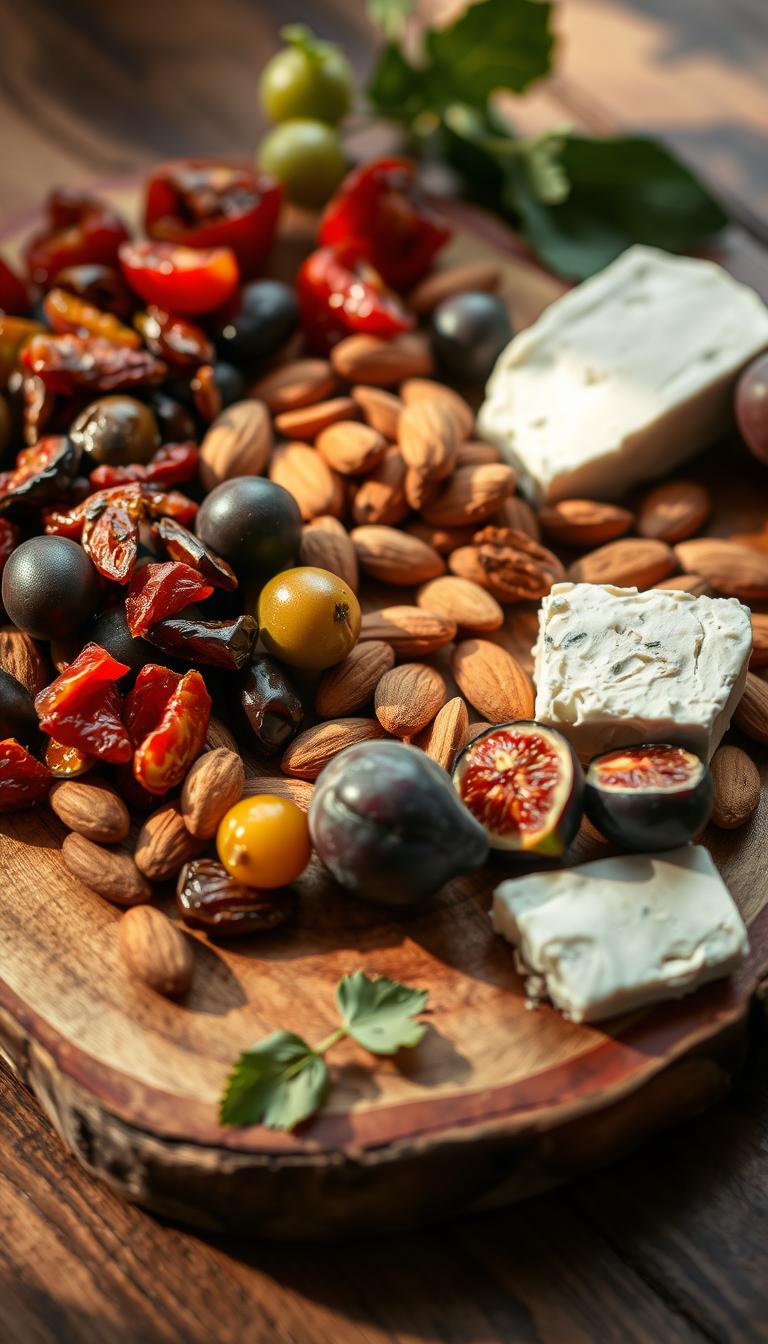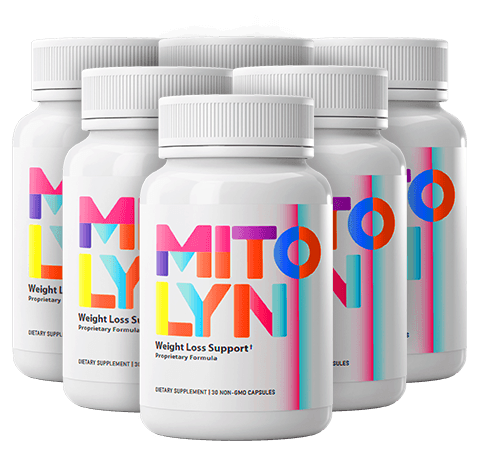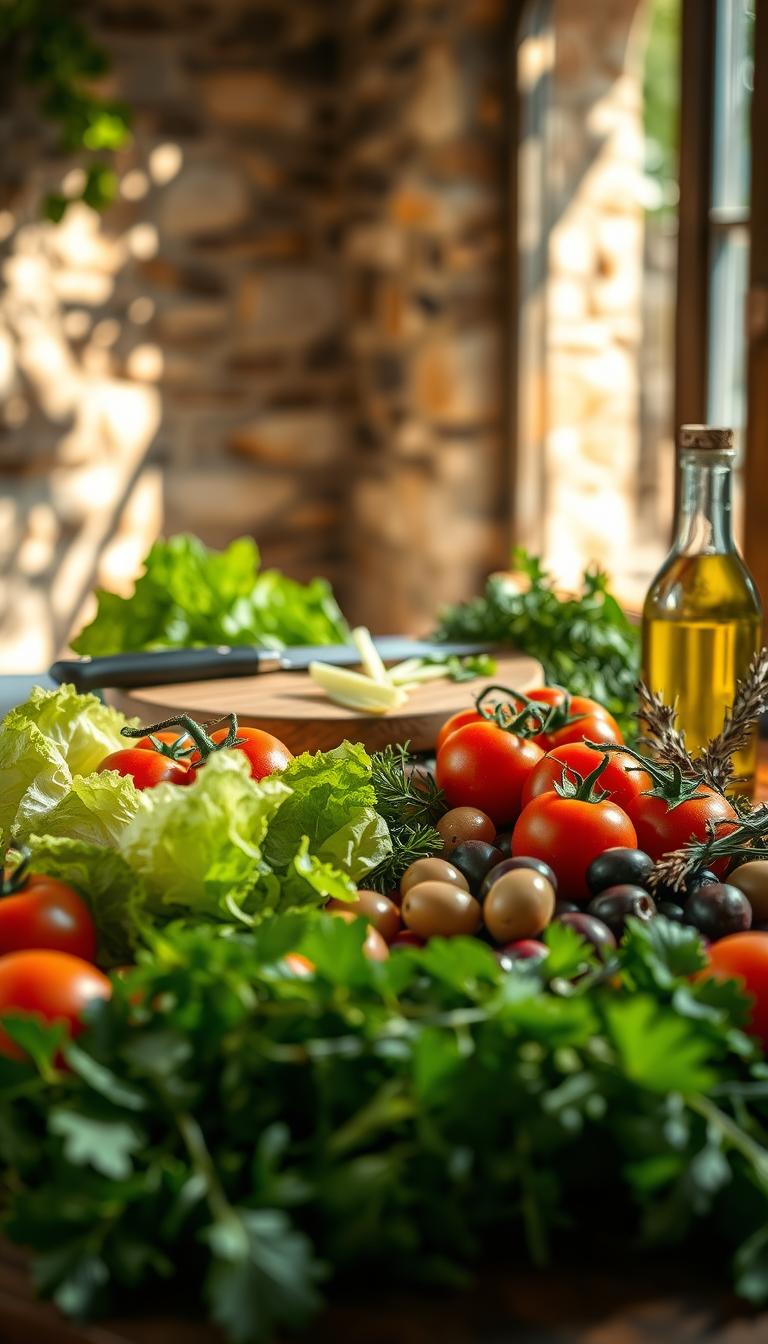
Imagine a diet that’s good for your heart, brain, and tastes amazing. The Mediterranean Diet For Beginners is all about that. It’s a way of eating that’s based on real, tasty foods that make you feel great. Are you curious about how this diet could change your life?
The Mediterranean Diet is all about eating whole foods. You’ll enjoy lots of veggies, fruits, whole grains, and healthy fats like olive oil. Fish and poultry are the stars, not red meat. It’s not about cutting out foods you love. Instead, it’s about enjoying meals full of flavor and variety, just like in Greece and Italy.
This diet is all about eating plant-based foods and making smart choices. It helps lower heart disease risks, helps with weight management, and even slows down brain aging. It’s easy to follow and fits into your daily life. Think colorful salads, grilled fish, and olive oil on fresh veggies.
Key Takeaways
- Focuses on vegetables, fruits, whole grains, and healthy fats like olive oil.
- Linked to reduced heart disease, better brain health, and cancer risk reduction.
- Emphasizes fish and plant-based proteins over red meat and processed foods.
- Encourages gradual changes rather than extreme restrictions.
- Supported by health experts as a sustainable, lifelong eating pattern.
What Is the Mediterranean Diet? A Simple Introduction
Imagine a way of eating that comes from the lively traditions of Mediterranean cultures. The Mediterranean diet is not just a diet. It’s a way of life that focuses on whole foods and balanced choices. It began with studies of healthy people in Greece, Italy, and Spain.
Researchers like Ancel Keys found that their diets were full of plants, fish, and olive oil. These diets were linked to fewer chronic diseases.
The Historical Roots of Mediterranean Eating
In the 1970s, studies showed that people in Crete and southern Italy were very healthy. Their meals were full of seasonal vegetables, fresh fish, and simple ingredients. This led to the Mediterranean diet being seen as a model for wellness, not just for losing weight.
Key Components and Food Groups
- Plants first: Fruits, veggies, whole grains, and legumes are the base.
- Healthy fats: Olive oil is the main fat source.
- Fish over meat: Eat fish twice a week, and save red meat for special times.
- Simple pleasures: Enjoy yogurt, cheese, and a little red wine in moderation.
How It Differs From Other Popular Diets
The Mediterranean diet is different from keto and paleo. It’s flexible and encourages variety. Even for beginners, it suggests small changes, like using olive oil instead of butter. No need to count calories; just make smart choices.
The Remarkable Health Benefits of Mediterranean Eating
Choosing the Mediterranean diet is more than tasty food—it’s a Mediterranean Diet Benefits that boosts your health. This Healthy Eating Plan cuts heart disease risk by up to 30%. It also lowers stroke chances and protects your brain as you get older.
Imagine cutting your Alzheimer’s risk nearly in half by eating meals full of olive oil, fish, and fresh produce.
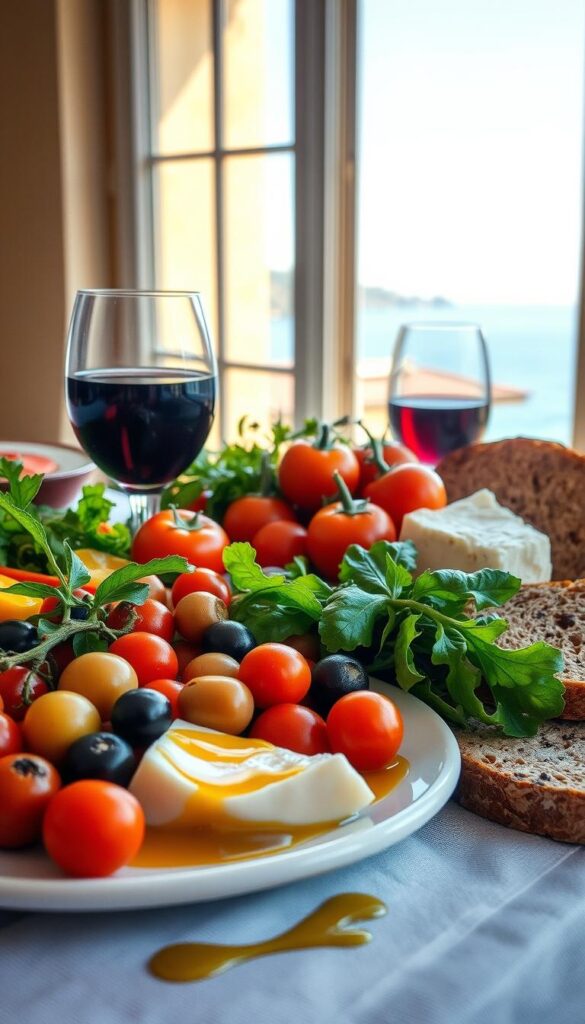
Studies show this diet is effective. A big study found 70% fewer heart deaths in followers. Even small changes, like using olive oil instead of butter, can lower LDL cholesterol by 13%.
The American Heart Association supports it, and it’s the #1 diet on U.S. News’ Best Diets list for 2023.
“The Mediterranean diet’s plant-based focus and healthy fats create a synergy that fights inflammation at a cellular level.”
So, why does it work so well? It’s all about colorful plates with antioxidants from berries, fiber from whole grains, and omega-3s from fish. These nutrients help stabilize blood sugar, reduce cancer risks, and improve gut health.
No need to count calories—just make smart food swaps. Ready to see these Mediterranean Diet Benefits? Start by swapping snacks with olives or adding grilled fish to your meals. Your future self will be grateful.
Mediterranean Diet For Beginners: First Steps to Success
Starting the Mediterranean diet is easy. These Mediterranean Diet Tips for Beginners and Easy Mediterranean Diet Tips help you get started right.
Pantry Essentials to Stock Up On
First, update your kitchen basics:
- Extra virgin olive oil for cooking and dressings
- Whole grains like quinoa, oats, and farro
- Canned beans, chickpeas, and lentils for quick meals
- Assorted nuts (almonds, walnuts) and seeds (chia, flax)
- Frozen vegetables and fruits for convenience

Foods to Embrace and Limit
| Embrace | Limit | Avoid |
|---|---|---|
| Vegetables, fruits, whole grains, fish, nuts | Poultry, eggs, low-fat dairy | Red meat, sugary snacks, processed foods |
Gradual Transition Tips for Lasting Change
- Swap butter with olive oil in cooking
- Add fish twice weekly (salmon, sardines)
- Replace refined carbs with whole grains
- Snack on nuts instead of chips
Small changes are big! Adding two extra vegetable servings daily can boost heart health. Start small and build good habits over time.
Creating Your Mediterranean Meal Plan
Starting a Mediterranean Diet Meal Plan is easy. Just make simple changes and mix things up. Use whole grains, fresh veggies, and healthy fats. This makes a Beginner’s Nutrition Plan that’s easy to follow.
Try new things like olive oil, nuts, and seasonal veggies. This keeps your meals fun and interesting.
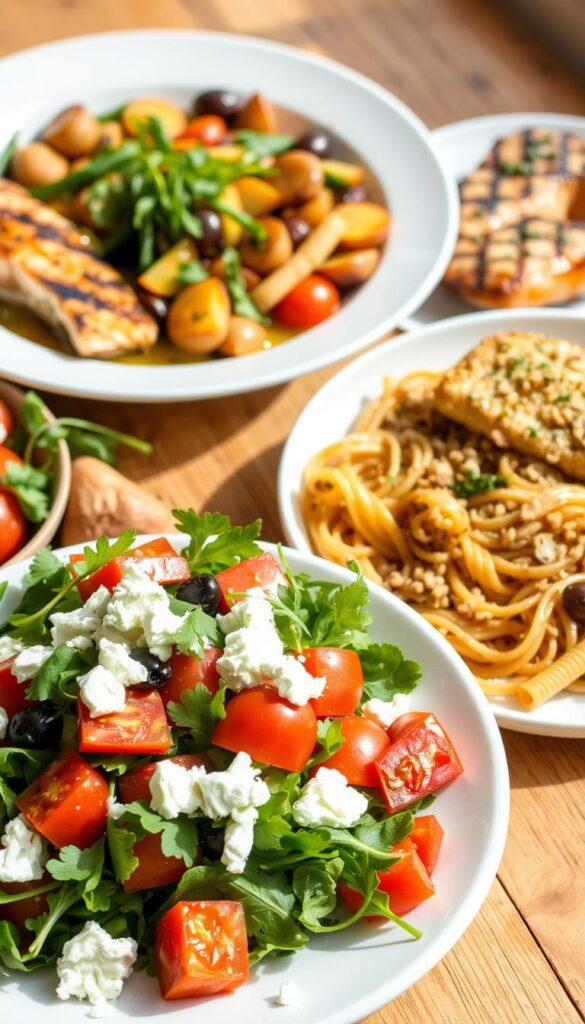
Breakfast Ideas to Start Your Day
- Steel-cut oats topped with berries and a drizzle of honey
- Vegetable frittata packed with spinach and feta
- Whole-grain toast with almond butter and sliced banana
Add walnuts or a small Greek yogurt cup for extra protein.
Lunch and Dinner Inspiration
- Bulgur tabbouleh bowls with lemon-dressed greens
- Sheet-pan salmon with roasted asparagus and quinoa
- Grilled chicken wraps with tzatziki and cucumber slices
Make grain salads or hummus ahead of time. This makes meal prep easier.
Smart Snacking the Mediterranean Way
- Carrot sticks with tahini dip
- Roasted chickpeas for a crunchy, protein-packed treat
- Dark chocolate squares (70%+ cocoa) with an apple slice
Choose snacks with 150–200 calories. This keeps you full without too much food.
Try a 14-day sample plan with these ideas. Adjust the sizes to meet your calorie needs (1,200–2,000 calories daily). Focus on fresh, seasonal foods and avoid processed ones for the best results.
Easy Mediterranean Recipes Anyone Can Make
Starting with Mediterranean Recipes is easy. You just need simple ingredients you might already have. These recipes use fresh veggies, healthy fats, and herbs. You don’t need to be a pro to make them.
Follow Easy Mediterranean Diet Tips for great taste. Use olive oil for cooking and add garlic or lemon for flavor. You can make these meals in 30 minutes or less.

- Greek Salad: Mix chopped cucumbers, tomatoes, red onion, and Kalamata olives with feta cheese. Add olive oil and lemon juice for a quick side or main dish.
- One-Pot Pasta: Cook garlic and cherry tomatoes first. Then add whole-wheat pasta and top with Parmesan. It’s ready in 20 minutes.
- Shakshuka: Cook canned tomatoes, bell peppers, and cumin. Crack eggs into the pot and bake until whites set. Serve with crusty bread.
- Herbed Chicken Skillet: Season chicken breasts with oregano and lemon zest. Sauté with zucchini and cherry tomatoes for a 20-minute dinner.
- Chickpea Grain Bowl: Layer cooked quinoa with roasted veggies, chickpeas, and a lemon-tahini dressing. Add grilled shrimp or tofu for protein.
Mediterranean Recipes are flexible. Try swapping spinach for arugula or using pre-washed greens to save time. Easy Mediterranean Diet Tips include using canned beans and frozen veggies for quick protein. Roast seasonal veggies like zucchini or eggplant with olive oil and herbs for a side in under 25 minutes.
Batch-cooking staples like brown rice or lentils soup on Sunday makes meal prep easier. Drizzle any dish with olive oil and lemon for instant flavor. These recipes show that whole foods and simple prep are for everyone, not just chefs.
Understanding Olive Oil: The Cornerstone of Mediterranean Cooking

In the Mediterranean Diet Guide, olive oil is more than a cooking tool. It’s a nutritional powerhouse. This golden liquid is at the heart of a Healthy Eating Plan. It brings antioxidants and healthy fats to every meal.
Selecting Quality Olive Oil
- Choose extra virgin olive oil (EVOO) for its pure taste and antioxidants like polyphenols.
- Look for labels stating “cold-pressed” and origin details like Crete or Peloponnese for authenticity.
- Store in dark glass bottles in a cool, dark place to preserve freshness and nutrients.
Cooking Methods and Best Practices
Use EVOO daily, aiming for 1–4 tablespoons. Here’s how:
- Sauté vegetables or proteins over medium heat—EVOO’s smoke point suits most dishes.
- Drizzle over roasted veggies or pasta for a final flavor boost.
- Swap butter or mayo with EVOO in dressings, marinades, or as a bread dip.
Beyond Cooking: Other Uses for Olive Oil
Its benefits extend beyond the kitchen. Try:
- Using it as a base for salad dressings or marinades.
- Massage into skin as a natural moisturizer (a timeless Greek tradition).
- Seasoning cast-iron pans to prevent sticking without excess oil.
Every drop of quality olive oil supports heart health and adds depth to meals. By making EVOO your go-to, you’re not just cooking—you’re embracing a timeless Healthy Eating Plan rooted in centuries of tradition.
Navigating Challenges: Common Hurdles and How to Overcome Them
Starting the Mediterranean Diet can seem hard, but small steps help a lot. Learn to stay on track when eating out, balancing family tastes, or keeping to a budget. Here’s how to succeed:
Restaurant dining: Many places have Mediterranean dishes. Always ask chefs to:
- Swap fried for grilled proteins like salmon or chicken.
- Use olive oil instead of butter or cream-based sauces.
- Add extra veggies to pasta or salads.
Planning meals for families? Start with small changes. Swap white carbs for whole grains slowly. Let kids help make dishes like veggie pizzas or zucchini noodles. Even small changes help a lot!
Want to save money? Choose seasonal produce and frozen veggies. Canned beans and tuna are cheap protein sources. Services like ModifyHealth offer affordable meal kits to help you start the How to Start Mediterranean Diet journey.

Craving processed foods? Fight it with whole foods. Choose nuts or fruit over chips. Trying intermittent fasting? An 8-hour eating window can help. Need ideas? Over 80% of users in U.S. News’ 2021 study found this diet easy to stick with. Small changes, like using olive oil instead of butter, create lasting habits.
The Mediterranean Lifestyle Beyond Food
Adopting a Mediterranean Diet Benefits is more than just food. It’s about changing how you live. Imagine enjoying meals with family instead of eating alone. This makes food more enjoyable and can even lower stress.

- Slow down: Eat without screens to enjoy flavors and feel full.
- Move naturally: Replace screen time with activities like walking or gardening.
- Rest smart: Take breaks, like a walk after eating, to recharge.
A Healthy Eating Plan works best with these habits. Studies show Mediterranean lifestyles improve brain function and heart health. Try these simple changes:
“Eating together strengthens bonds and fosters mindful eating.”
- Have family dinners without phones or TVs.
- Take the stairs and park far from stores.
- Use herbs like oregano instead of salt.
By adding these habits, you build a strong foundation for wellness. Small actions, like a 15-minute walk after lunch, can help a lot. It’s not just about food—it’s about how you live.
Tracking Your Progress and Staying Motivated
Sticking to the Mediterranean Diet is all about celebrating small wins. Use these Mediterranean Diet Tips for Beginners to keep your focus. Remember, progress is slow, but every choice you make brings you closer.
![]()
Setting Realistic Expectations
First, figure out why you want to follow the Mediterranean Diet. Do you want more energy or better heart health? Studies show it can lower heart risks by 30%. But, it takes months, not days.
Set SMARTER goals:
- Specific: “Try three new recipes this week.”
- Measurable: Track meals with apps like MyFitnessPal.
- Time-bound: Aim to cook at home 5 times weekly by next month.
Non-Scale Victories to Celebrate
Don’t just look at the scale. Notice other changes like:
- Brighter skin or fewer cravings
- More energy to tackle daily tasks
- Improved sleep quality
- Enjoying cooking more than before
Keep a journal to record these victories. Apps like Noom can help track your mood and energy.
Building a Support System
A strong network helps you succeed. Explore:
- Online groups like the Beginner’s Nutrition Plan forum
- Cooking classes to learn Mediterranean techniques
- Weekly check-ins with a dietitian or friend
Pair your Mediterranean Diet Tips for Beginners with a community. Success is easier when you’re not alone.
Conclusion: Embracing Mediterranean Eating as a Lifelong Journey
Choosing the Mediterranean diet isn’t about strict rules. It’s about building lasting habits. This diet comes from Greece, Italy, and Spain. It combines flavors, nutrients, and cultural wisdom for a sustainable lifestyle.
It focuses on vegetables, whole grains, and healthy fats like olive oil. This makes it easy to fit into your daily life. Start with a simple salad or try Mediterranean recipes. Every step is important.
Studies show this diet lowers heart disease risk and supports long-term health. It’s better than strict diets. The Mediterranean diet guide teaches balance, not perfection. This lets you enjoy treats without feeling guilty.
Imagine meals that taste great and make you feel good. This keeps you excited about eating. Small changes, like using different oils or adding nuts, can make a big difference.
Start by trying a new Mediterranean recipe each week. Swap processed snacks for fresh fruit or hummus with veggies. These small changes can become lasting habits.
Remember, the diet’s flexibility is key. It works for vegetarians, vegans, or families. Sharing meals with loved ones can help you stay on track. By embracing the Mediterranean lifestyle, you’re choosing a path that improves your health and happiness.
Every bite of this diet is a step toward a healthier future. Look for Mediterranean diet guide resources for easy swaps and tasty dishes. Celebrate your progress, not perfection. Let this journey nourish your body and make eating enjoyable. With its rich heritage and scientific benefits, the Mediterranean diet offers a lifetime of delicious, sustainable choices.
FAQ
What foods are included in the Mediterranean diet?
The Mediterranean diet is all about eating lots of fruits, veggies, whole grains, and legumes. It also includes healthy fats from olive oil. You’ll eat fish and seafood in moderation, with some dairy, eggs, and poultry. Red meat and sweets are kept to a minimum.
Is the Mediterranean diet difficult to follow for beginners?
No way! It’s easy and flexible. You get to enjoy fresh foods without strict rules. It’s great for anyone starting out.
What are the health benefits of the Mediterranean diet?
It’s good for your heart and helps with weight control. It also keeps blood sugar in check and might help your brain stay sharp. Plus, it fights inflammation and boosts gut health.
Can I still enjoy my favorite foods on the Mediterranean diet?
Yes! You can still have treats now and then. It’s about adding healthy foods, not cutting out everything you like.
How do I start transitioning to the Mediterranean diet?
Start by making small changes. Use olive oil instead of butter, and eat more plant-based foods. Take it slow and enjoy the journey.
Are there easy Mediterranean recipes for beginners?
Absolutely! Try Greek salad, Mediterranean chicken, or hummus. These recipes are simple and use common ingredients.
What should I keep in my pantry to follow the Mediterranean diet?
Keep olive oil, whole grains, canned legumes, nuts, herbs, and spices on hand. These basics make cooking easier and more fun.
How can I enjoy Mediterranean meals when dining out?
Look for Mediterranean dishes on menus. Ask for changes to make them healthier. Choose meals with veggies, whole grains, and lean proteins.
What if I have family members who don’t prefer Mediterranean food?
Start by introducing dishes they like. Find recipes that everyone can enjoy. You can also add Mediterranean touches to familiar meals.









